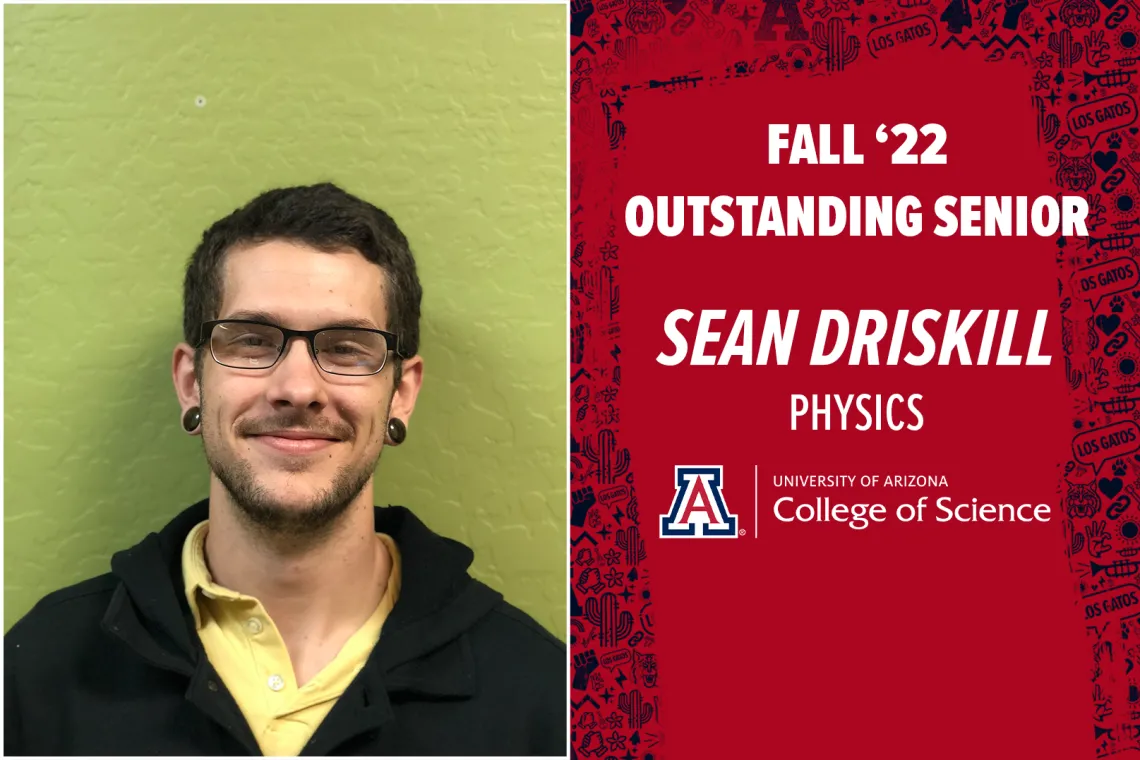Outstanding Seniors in the College of Science: Sean Driskill

This fall, departments in the University of Arizona's College of Science nominated an outstanding senior who went above and beyond during their time as a Wildcat. We are pleased to share their stories as they reflect on their time at UArizona. Next up in the senior spotlight series is Sean Driskill.
Sean Driskill
Physics
College of Science: Why did you choose your area of study?
Driskill: I took a physics 101 class as a gen-ed requirement for a construction management program. Almost no math was involved, and that qualitative study allowed me to see just how cool physics can be. After catching up on math classes, I took a calculus-based physics class, and I haven't looked back since.
COS: Tell us about a class or research project you really enjoyed
Driskill: I've enjoyed all of my undergraduate research. The first time I assembled an optical setup for a new measurement was a big highlight. Both my in-lab training and lessons from PHYS320, Optics, were put to the test. I proved to myself that I knew how to handle equipment, independently study unfamiliar components, and most importantly, not hurt myself or others with a stray laser beam.
COS: What is one specific memory from your time at UA that you'll cherish forever?
Driskill: This one might be a bit weird, but it was when I lost my 4.0 GPA. I wasn't an ambitious student in high school by any metric. Coming back to school after a few years away, I took a great deal of pride in maintaining a "perfect" GPA throughout community college and my first couple of terms at U of A, but this also came with compounding stress every semester as I continued my streak. Getting my first "B" was devastating for a couple of days, but it led to a brief period of growth that ultimately boosted my self-esteem and ambitions.
COS: What is next for you after graduation?
Driskill: I've applied to some physics graduate programs, and I'll be hearing back from these programs in the spring. In the meantime, I'll be continuing my work in the Schaibley Lab.

